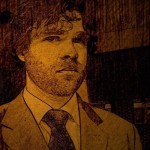 If you were surprised at my take on the nature of literature in “Evolutionary psychology and the do’s and dont’s of writing archetypes,” the far-more-popular literature website The Millions recently published a good survey of evolutionary literary theory: “On the Origin of Novels? Encountering Literary Darwinism.”
If you were surprised at my take on the nature of literature in “Evolutionary psychology and the do’s and dont’s of writing archetypes,” the far-more-popular literature website The Millions recently published a good survey of evolutionary literary theory: “On the Origin of Novels? Encountering Literary Darwinism.”
First let me get this out of the way…
I feel it’s almost always inappropriate to call evolutionary models “Darwinism.” Why? Because when there are two modes of reference for any scientific model—an objective mode that focuses on the phenomenon (i.e., “evolution by natural selection”) and a subjective mode that focuses on the theoretician (i.e., “Darwinism”)—the latter should be strictly confined to discussing what the author actually wrote, and not for the extrapolations of other thinkers and scientists.
If Darwin didn’t write it, it might be “natural selection” but it ain’t “Darwinism.”
Granted, the thinkers discussed at The Millions are interested in applying evolutionary principles to stories as adaptations, in other words: how do stories help humans survive and propagate? My interest is in applying evolutionary principles to stories as adaptive entities in themselves, that is: how do certain story elements derive from a selective process in the human psyche?
